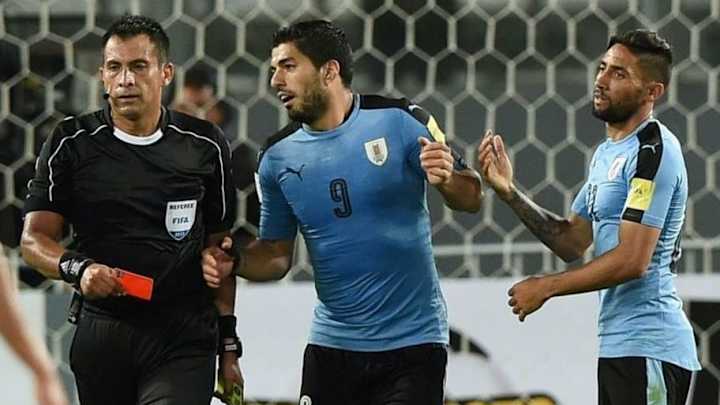World Cup Referees Can Use VAR to Dish Out Red Cards During Games for Incidents They Missed

VAR technology will allow officials at the World Cup to issue retrospective red cards to players guilty of violent conduct or other similar behaviours that were missed by the referee and his assistants at the time, even after play has restarted.
That means red cards for offences such as striking an opponent, spitting, or biting (Luis Suarez, take note), can be issued at any time after the footage has been reviewed by the VAR official.
Players could even be dismissed at half-time if they have committed an offence during the first half that went unnoticed, but was reviewed during the interval.
Getting away with sly acts of violence towards an opponent is now much harder.
"We do not anticipate this happening very often. However, if there is something away from the action that has been missed and it later comes to the attention of the VAR or the assistant VAR, then they can inform the referee and he can send the player off, even if it is later in the match," David Elleray, technical director of the International Football Association Board told The Times.
"This would only be for serious red-card offences," he added, clarifying that minor incidents will not be reviewed in the same way. Coaches and teams will therefore not be able to pester officials into dishing out yellow cards after the fact.
VAR can otherwise be called upon to review goals, penalty decisions, or mistaken identity in the case of yellow and red cards. The technology was written into the laws of the game by IFAB in March of this year, although the use of it remains optional in individual competitions.
The Premier League, for example, is yet to implement it, but it has been used in the FA Cup.
FIFA approved use of VAR for the 2018 World Cup at a council meeting in March.
